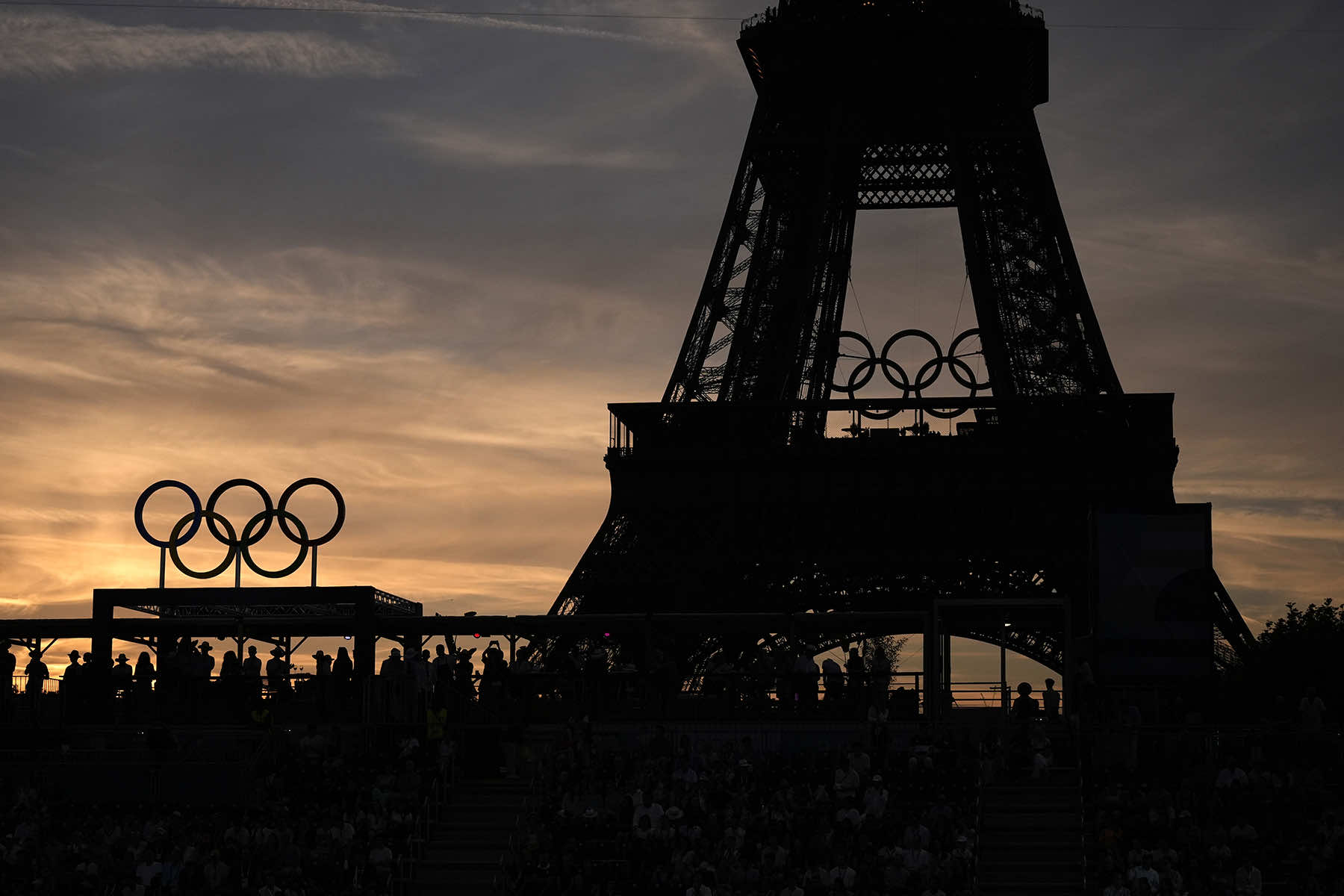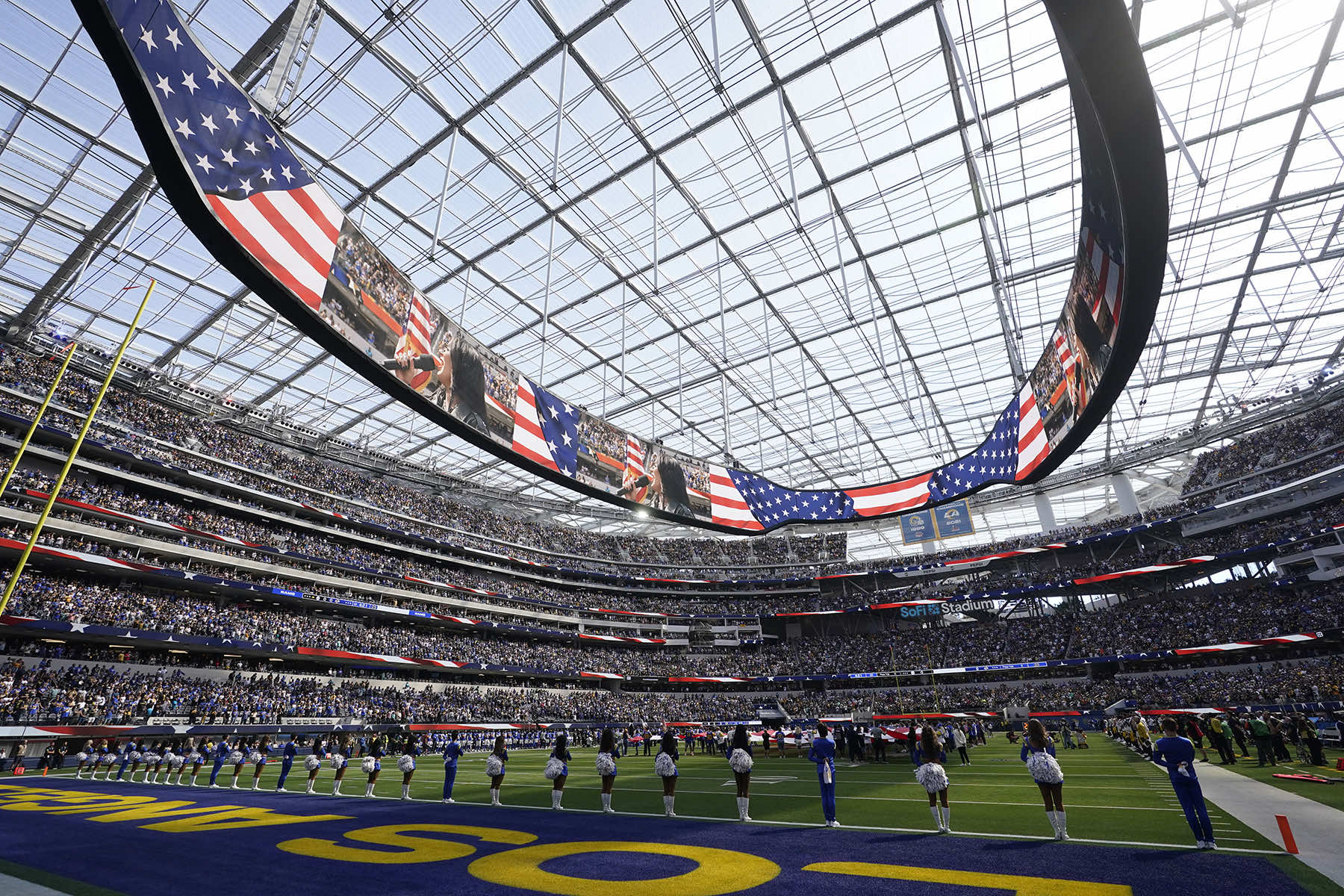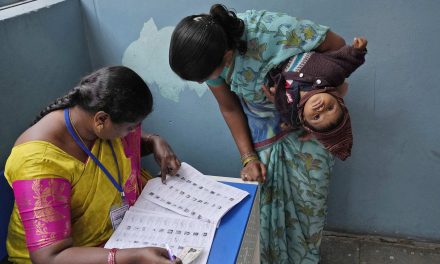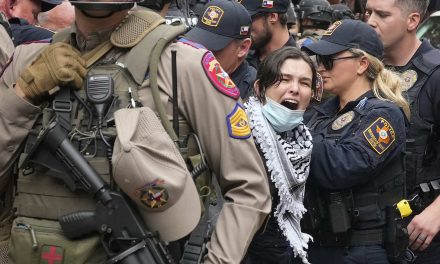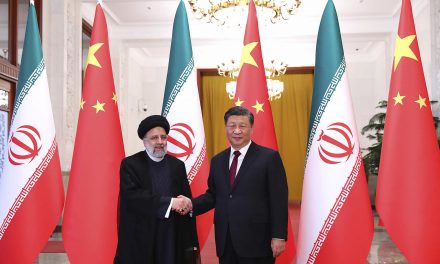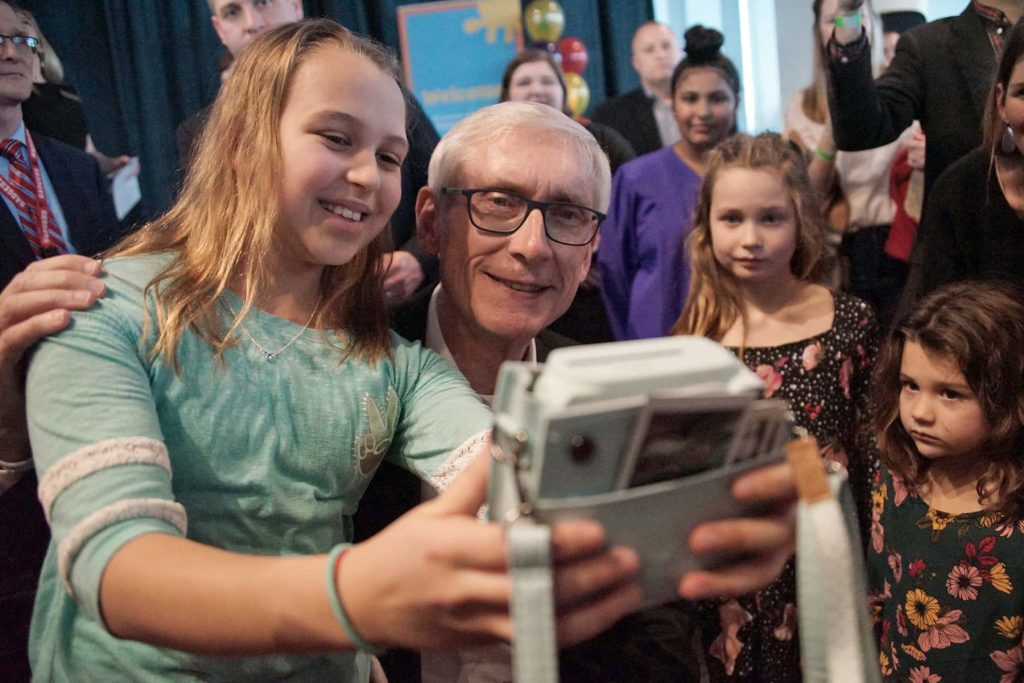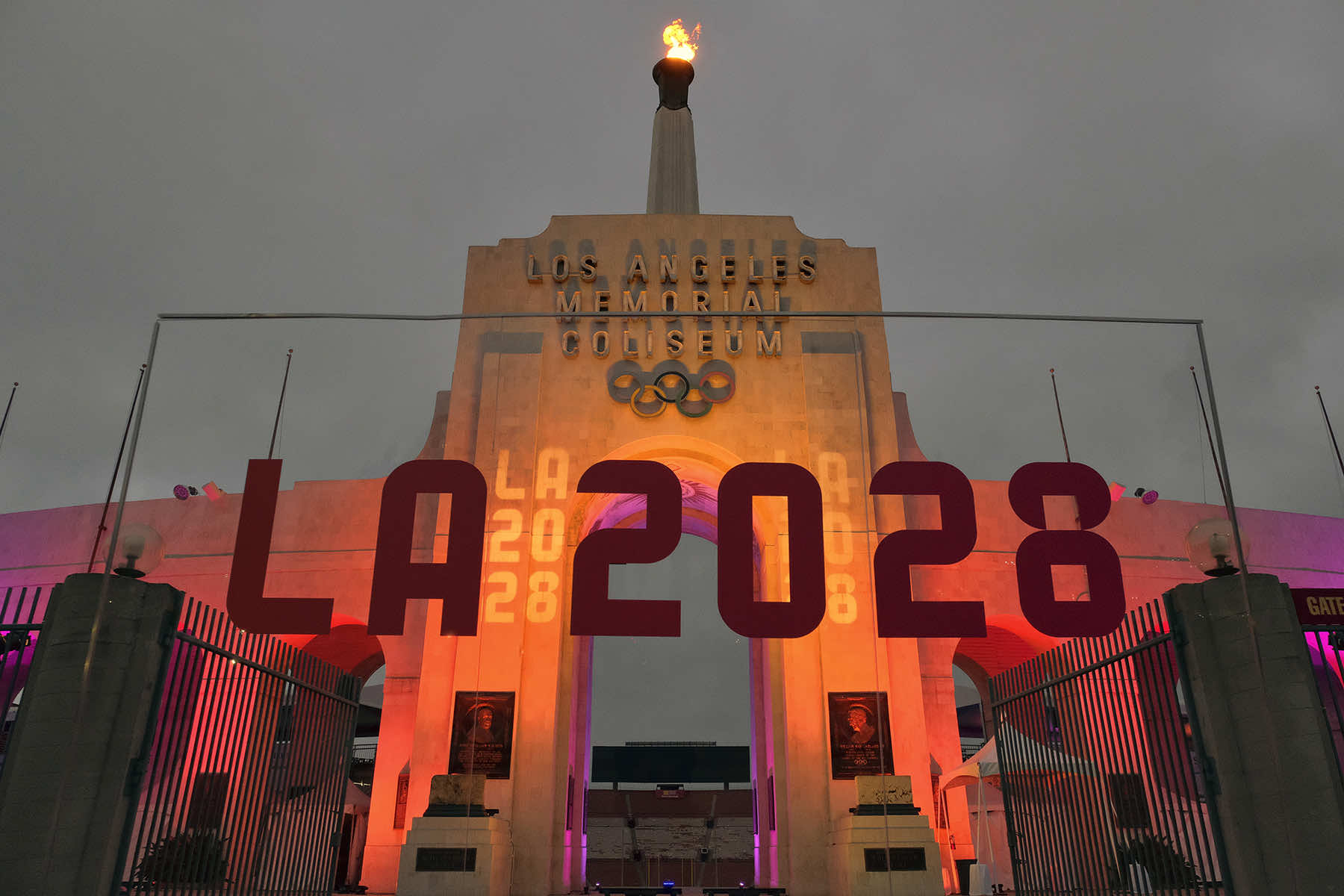
The Olympics will always have Paris. Next up for the Summer Games: Los Angeles 2028. The baton will be handed from one third-time Olympic host city to another at the closing ceremony on August 11 in Paris, and much will be different in four years’ time.
New sports will make their Olympic debuts, picked by organizers in LA who also are bringing back others that left the program more than 100 years ago. While Paris had the Seine River, LA has the Pacific Ocean and its beaches. Paris’ unmatched historic buildings gave the city a cinematic look. LA’s streets are a living history of film and television.
Here is a look at some things that will be different about the next Summer Games. Which sports will be new at the Los Angeles Olympics?
Flag football, squash and obstacle racing. Yes, “American Ninja Warrior”-style obstacle racing, to replace the horses and pep up modern pentathlon.
Sports that get invited into the Olympics typically are played across the world. In the modern Olympics, however, they also must be wanted by the host city.
Flag football is a good fit for Los Angeles organizers, who last year told IOC members before they voted that it represents “the future and the tip of the spear for American football’s international growth.”
Squash will join tennis and badminton as racket sports at the Games. Could padel or pickleball one day follow? Squash lost out in several previous campaigns and, like flag football, now goes Games to Games with no guarantee of staying for the 2032 Brisbane Olympics.
Modern pentathlon has been an Olympics staple since 1912 but often has seemed close to being ousted. Equestrian is being replaced as one of the five disciplines as requested by the IOC after a horse was abused in Tokyo three years ago.
In comes obstacle racing in LA, aiming to make the sport more accessible and relatable.
GONE FOR A CENTURY, BACK IN LA
Lacrosse last was played at the Olympics in 1908, cricket not since 1900. Both return in 2028 with eager support from Los Angeles organizers and in viewer-friendly short formats; Lacrosse in a six-a-side version, cricket in the aggressive, hard-hitting T20 version that does not require five days per match.
Lacrosse pays respect to the Indigenous roots of the sport: “It is truly authentic to the land we are on,” LA 2028 chairman Casey Wasserman said.
Cricket has been coveted to connect especially with the more than 1.6 billion people in India and Pakistan.
“They are going to be paying attention to the Olympics like they never have,” Wasserman said. Cricket surely will be kept in 2032 by Brisbane, which is home to one of the sport’s most storied venues.
Baseball and softball have perhaps the most unusual modern Olympics story: out after the 2008 Beijing Games, back in at Tokyo in 2021, out in Paris, back in LA. Well, Oklahoma City, in softball’s case.
Home to women’s softball in 2028 is Devon Park that stages the Women’s College World Series each year, about 1,300 miles from the Pacific Ocean.
Baseball Commissioner Rob Manfred has said he’s open to allowing Major League Baseball players to participate in the LA Games, but significant challenges remain. Insurance policies for players like Shohei Ohtani and Aaron Judge, whose contracts are worth hundreds of millions of dollars, may be the biggest sticking point.
EARLY OPENING, EARLY CLOSING
The next Summer Games start two weeks earlier than this one, with an opening ceremony on July 14. There is no river in LA to match Paris’ athlete parade on boats on the Seine, though it will use two stadiums instead of one: both SoFi Stadium and the Los Angeles Memorial Coliseum will be in play. That plan means flipping the schedule of the modern Summer Games.
Track and field is at the Coliseum — as it was in 1932 and 1984 — and now moves up a week, replacing swimming as the front-loaded anchor sport. That is because So-Fi must be converted into a spectacular temporary venue for swimming with seats for 38,000 fans. Races will move back into the second full week of action.
The July 30 end date in Los Angeles is the first time a northern hemisphere Summer Games will finish so early since the 1924 Olympics closed July 27 in Paris.
HOW WILL THE LOS ANGELES OLYMPICS LOOK?
The Paris Olympics often looked incredible on screen. Los Angeles practically invented the look of modern cinema and television and is a creative hub of music and fashion.
The message here to LA is consistently: Do not try to copy Paris.
“Paris is the most beautiful city in the world,” Wasserman said. “The 2028 Games will be authentically Los Angeles.”
The IOC’s head of Olympic broadcasting, Yiannis Exarchos, said LA “cannot redo a city (Paris) with a history of 500 years. LA speaks about the future, about new frontiers, about technology.”
Road events such as marathons and cycling can show “where a big part of the mythology of the 20th century has been created, because of Hollywood,” Exarchos said in an interview.
“This is where I am more intrigued. I find interesting to see how we can recreate the television geography of LA.”
Los Angeles Mayor Karen Bass and Casey Wasserman, chairman of the LA 2028 organizing committee, highlighted some of the planning already completed before Paris organizers hand the Games over to them during the closing ceremony. Bass was preemptive about the traffic, addressing it in her opening remarks.
“We’re already working to create jobs by expanding our public transportation system in order for us to have a no-car Games,” she said. “And that’s a feat for Los Angeles, as we’ve always been in love with our cars. We’re working to ensure that we can build a greener Los Angeles.”
WORKING FROM HOME
Bass said public transportation will be the only way to access the Los Angeles venues, and her plan to address traffic snarls consists of both using 3,000 buses that will be borrowed from all over the country and asking businesses to allow their employees to work from home during the 17-day period.
It will be the third time Los Angeles will host the Olympics, and Bass noted that widespread panic over traffic ahead of the 1984 Games proved needless.
“Angelinos were terrified that we were going to have terrible, terrible traffic, and we were shocked that we didn’t,” Bass said. “But I will tell you, in 1984, we didn’t have any of the technology that we do today. We learned in COVID that you can work remotely.”
Tom Bradley, mayor of Los Angeles in 1984, had local businesses stagger their workforce hours to reduce the number of cars on the road. Bass likes that approach but wants to go even further, with nonessential workers permitted to work remotely during the Games.
“Part of having a no-car Olympics means getting people not to drive,” Bass said.
Paris has been lauded for how accessible the Games have been, with nearly every venue reachable by Metro, commuter train, tram or bus. Los Angeles has bus and light rail systems but only two subway lines, public transit that pales in scope to metropolitan cities such as Paris, London and New York.
Bass does not yet have a commitment from LA-based businesses to allow their employees to work from home during the Games.
“I think the way that it should work is to meet with the city’s major employers and to talk about staggering work hours, which is something that was done 40 years ago when we had no technical cellphones and personal computers,” Bass said. “I think, frankly, it is not going to be difficult this time. I think the workforce, probably around the world, certainly around our country, is grappling with remote work now. So I do think that there might be some employers that we could say, ‘Could you be remote for 17 days?’ It’s going to be a lot easier because we did go through COVID, so people will have some reference point in recent history as to how you could do that.”
ADDRESSING THE HOMELESS PROBLEM
The Los Angeles Homeless Services Authority said in June there were 75,312 unhoused people in the county and 45,252 unhoused in the city of LA in 2024. Those numbers must be decreased for the city to be able to sparkle on global television. Paris organizers relocated thousands of unhoused people ahead of these Games.
Bass said she was working at both the government level and with the private sector and vowed: “We are going to get Angelinos housed.”
“That is what we have been doing, and we’re going to continue to do that,” Bass said. “We will get people housed. We will get them off the street. We will get them into temporary housing, address the reason why they were unhoused and get them into permanent housing.”
KEEPING LA SAFE
Wasserman said LA organizers already are working with the federal government on security plans.
“Our mantra is we need to be the safest place, but we need to be the greatest experience as well and we’re not going to sacrifice one for the other,” he said. “The Olympics is not a normal event. It doesn’t matter in what time it operates or what city it is. The benefit of LA is we have lots of incredibly big global events, so we are used to different security protocols for those events.”
Organizers have an operating budget of $6.8 billion, Wasserman said. That figure does not include security, which will be taxpayer-funded.
EFFECTS OF U.S. PRESIDENTIAL ELECTION
LA organizers said there is no way the results of the November presidential election will not impact the Games in some fashion, but Bass or Wasserman were not concerned.
Wasserman noted that three different sitting presidents have supported Los Angeles’ effort, dating back to President Barack Obama’s letter backing the city ahead of its 2017 winning bid.
“I just want to remind people, this is about the red, white and blue,” Wasserman said. “This is not about the red and blue. We all march behind the same flag, the same name, the same anthem, and this is something that’s going to bring our country together.”





